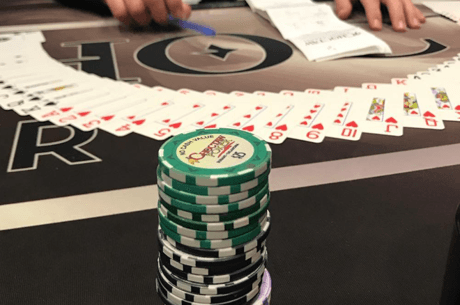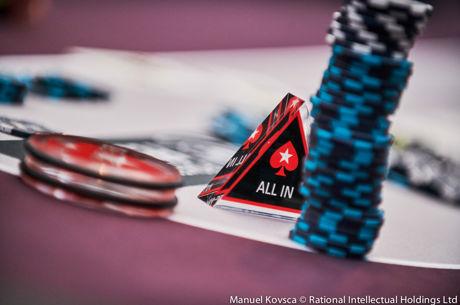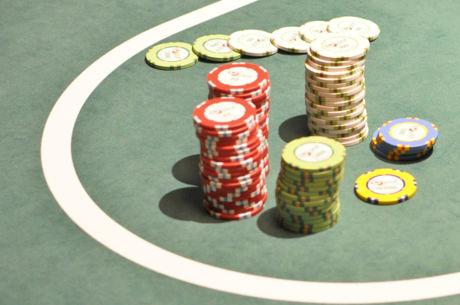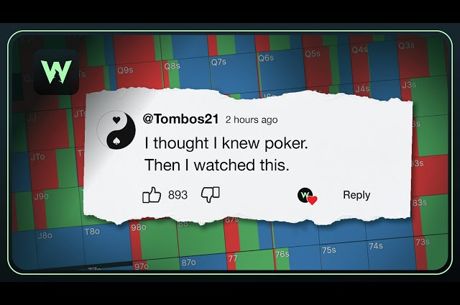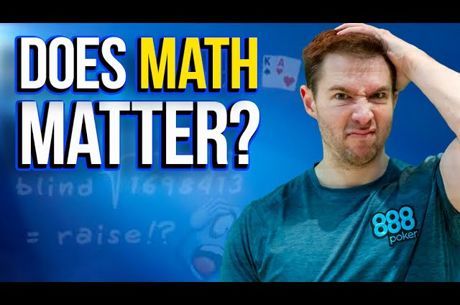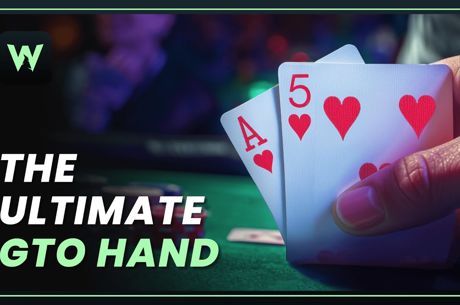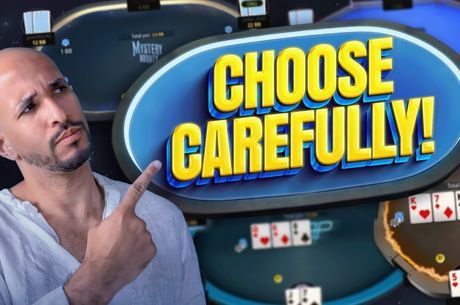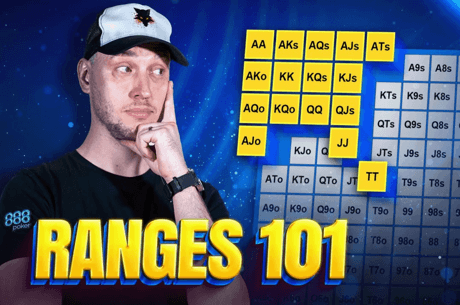What Not to Do: The Desperate, Out-of-Position Shove
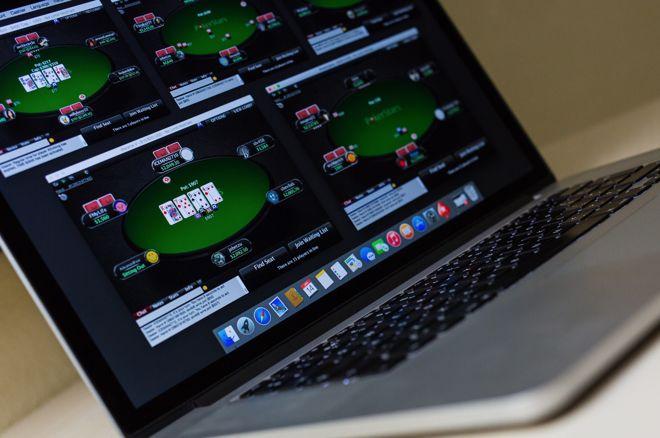
We often see no-limit hold'em players getting overexcited. One frequent example of this phenomenon arises when an inexperienced player is out of position with a hand that was once strong, but isn't any longer.
Something changes between the point when such a player tells himself his hand was good and the moment that player makes a crucial mistake (usually after the community cards arrive). The player lets frustration take over and sometimes will make a desperate bid to win the pot.
Let's watch such a car crash together to see if we can learn anything from it.
From Preflop to Postflop
The game was six-handed no-limit hold'em, played online at 100NL ($0.50/$1). The hand started with two limps from under the gun and the button. It folded to the big blind, an inexperienced player, who raised to $4.50, and both opponents called. They were all 200 big blinds deep, more or less.
The pot was about $14 when the came J♠6♠3♦. Our raiser in the big blind checked to the limpers, the first of whom, the under the gun one, bet near the pot — $13. The second limper folded and the big blind called.
The turn was the J♦, pairing the top card and adding a second flush draw. Our limper could have plenty of jacks in his hand, ranging from KxJx-offsuit to Jx8x-suited. Having limp-called preflop, he is unlikely to have two of the highest cards in the deck, and is more likely to hold middling cards.
In other words, the UTG player can very well have a strong hand on this flop, despite having a weak range preflop. Then again, he might have lots of hands that missed on a flop that is not particularly hard to miss.
Meanwhile, by check-calling the flop our big blind has indicated a desire to get to a showdown. That is to say, he probably could not have made a confident value bet on the flop into two opponents. This would rule out AxJx and better.
Given that, the jack on the turn should have changed nothing in terms of the strength of the big blind's hand relative to the under the gun player. However, if the big blind has a hand like 9x9x that was worried about the overcard, it is now less likely that UTG has one of the jacks.
The big blind checked again and the under the gun player continued in a hefty way, betting $38.
Reading Your Own Hand
The big blind called this larger turn bet. It should be obvious to both players at this point that the big blind probably does not have a two-overcard hand like AxQx or AxKx unless there's a flush draw to go with it. That would make big blind's range look very much like pocket pairs, sevens through tens.
The river was a brick, the 5♥. Only a rare gutshot, 7x4x or 4x2x, got there on this card.
The big blind has checked twice to an opponent with a wide range before the flop that might have connected, and that opponent has been betting all the way. Let's review a bit and think from the big blind's perspective what UTG could have.
Under the gun could still have some bluffs. Had he turned a flush draw he often would have bet, trying to represent a jack. He could have a different straight draw, like 5x4x-suited, that hasn't improved enough on this card to showdown his hand for the win. Or, since he was given the chance on the flop, he could be airballing with a Qx10x-type hand.
In any case, on the river the big blind should check any underpair. The big blind might win the pot if both players check. Or he could be put to a decision whether or not to call a river bet, and that could also lead to winning the pot.
If the big blind bets here, however, on a J♠6♠3♦J♦5♥ board with two missed flush draws, the under the gun player can simply fold any hand he might have bluffed. What other choice would he have?
As it happened, the big blind decided to shove 150 big blinds effective on this totally blank river. The UTG player had flopped top pair and turned trips with K♥J♥, so wasn't interested in relinquishing the pot. He called and won a big one.
Under the gun had what he was representing, which the big blind may have found out anyway had he checked and called the river. But at least it would have been in line with his actions up to that point. Painfully, big blind had to muck 10x10x in a 400-big blind pot.
Don't Panic
It is easy to write such a thing, but looking at the big blind's check-call on the flop, it's clear he had a plan for the hand that he totally abandoned on the river in a panic. And the plan was a good one.
If he had checked the river, maybe UTG makes a healthy bet and the big blind pays off to lose less. Or maybe UTG moves all in and the big blind folds, getting away for cheap.
But instead the big blind thought back to before the flop, back when he was certain to have had the best hand of the three players, and he stubbornly wanted to restore himself to that state of affairs with nothing but boldness.
Unfortunately poker, more often than not, tends not to reward such unthinking heroism.

